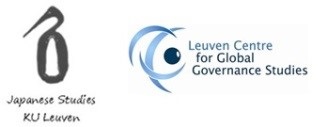
第18回 日・EUカンファレンス (ブリュッセル)
Standards, Governance and the Rule of Law - Opportunities for EU-Japan Cooperation

毎年、日欧の学術機関等が中心となってブリュッセルで開催している「日・EUカンファレンス」。第18回目は「標準、ガバナンス、法の支配と日EU協力」をテーマに2015年11月16日に開催しました。
プログラムはこちら
The opening session featured a keynote address by H.E. Ambassador Keiichi Katakami (Mission of Japan to the EU). This event had 4 themes:
Policy Panel 1 : Humanitarian Assistance and Emergency Relief Cooperation and Development Assistance after the UN World Conference on Disaster Risk Reduction in Sendai
This year's UN World Conference on Disaster Risk Reduction agreed the Sendai Framework for Disaster Risk Reduction (2015-2030), as the successor instrument to the Hyogo Framework for Action (HFA) 2005-2015: Building the Resilience of Nations and Communities to Disasters. Whilst ensuring continuity with worked under the HFA, the Sendai Framework introduced a number of innovations including a greater focus on disaster risk management rather than disaster management, the definition of seven global targets, as well as an overarching focus on preventing new risk, reducing existing risk and strengthening resilience. With Japan and the EU seeking to deepen their strategic partnership through heightened joint engagement in capacity-building and disaster relief in third countries, this session considered the EU and Japanese strategies for action.
Expert Panel 1 : Enhancing the Rule of Law at Sea
During their May Summit, the leaders of the EU and Japan emphasised the importance of ensuring the rule of law of the sea, welcomed their ongoing cooperation on anti-piracy activities, but underlined "the need for all parties to seek peaceful, and cooperative solutions to maritime claims, including through internationally recognized legal dispute settlement mechanisms, and to maintain full freedom of navigation and overflight of the high seas under international law as enshrined in the United Nations Convention of the Law of the Sea". The Rule of Law at Sea ensures that any claims are assessed based on international law and that individual actors refrain from taking unilateral actions. This session considered the competing territorial claims in the East and South China Seas, examined the EU Maritime Security Strategy and also heard from the Registrar at the International Tribunal for the Law of the Sea.
Policy Panel 2 : Progress Made on the EPA/FTA and SPA Negotiations
Since 2013, the EU and Japan have been engaged in formal negotiations on a Strategic Partnership Agreement and on a Free Trade / Economic Partnership Agreement. July saw the 11th round of formal FTA/EPA talks. At May's EU-Japan Summit, the leaders of the EU and Japan agreed to entrust "our negotiators with the mandate to settle the outstanding differences with a view to reaching agreement encompassing all the key issues preferably by the end of 2015". The session analysed the progress made in the EU-Japan FTA/EPA negotiations.
Expert Panel 2 : Regulatory Cooperation and the Impact on Industry
In March, the European Commission and Japanese Government agreed a common vision towards deepening and enlarging their regulatory cooperation – especially in some key new areas (robotics, construction and medical devices). The goal is to ensure that the public and private sectors will cooperate at an earlier stage in the legislative process, decreasing regulatory discrepancies and formulating common rules necessary for the future. Regulatory Cooperation will be both part of and transcend any FTA/EPA as it covers not only business issues, but also issues such as regulatory cooperation in the field of conflict minerals. Regulatory cooperation can have a wide range of implications considering both the chosen format – e.g. reciprocal mutual recognition vs. joint regulation – and the economic sectors affected. More than in any other chapter of the negotiations, regulatory cooperation involves all stakeholders from the official regulatory agencies to the individual sectoral economic interests. Understanding this multiplicity of actors and the contrasting impact different forms of regulatory harmonisation might have are therefore key to any future regulatory cooperation between the EU and Japan. This session considered the possibilities for trilateral regulatory cooperation (EU-Japan-US) and heard the views of industry from Europe and Japan and from one of the key contributors to the FTA/EPA Trade and Sustainability Impact Assessment which was being prepared for the European Commission.
Information on previous Japan-EU Conferences can be found at:
17th Japan-EU Conference (17 November 2014)
16th Japan-EU Conference (25 November 2013)
15th Japan-EU Conference (26 November 2012)
14th Japan-EU Conference (28 November 2011)
 |  |  | ||
 |  |  |
